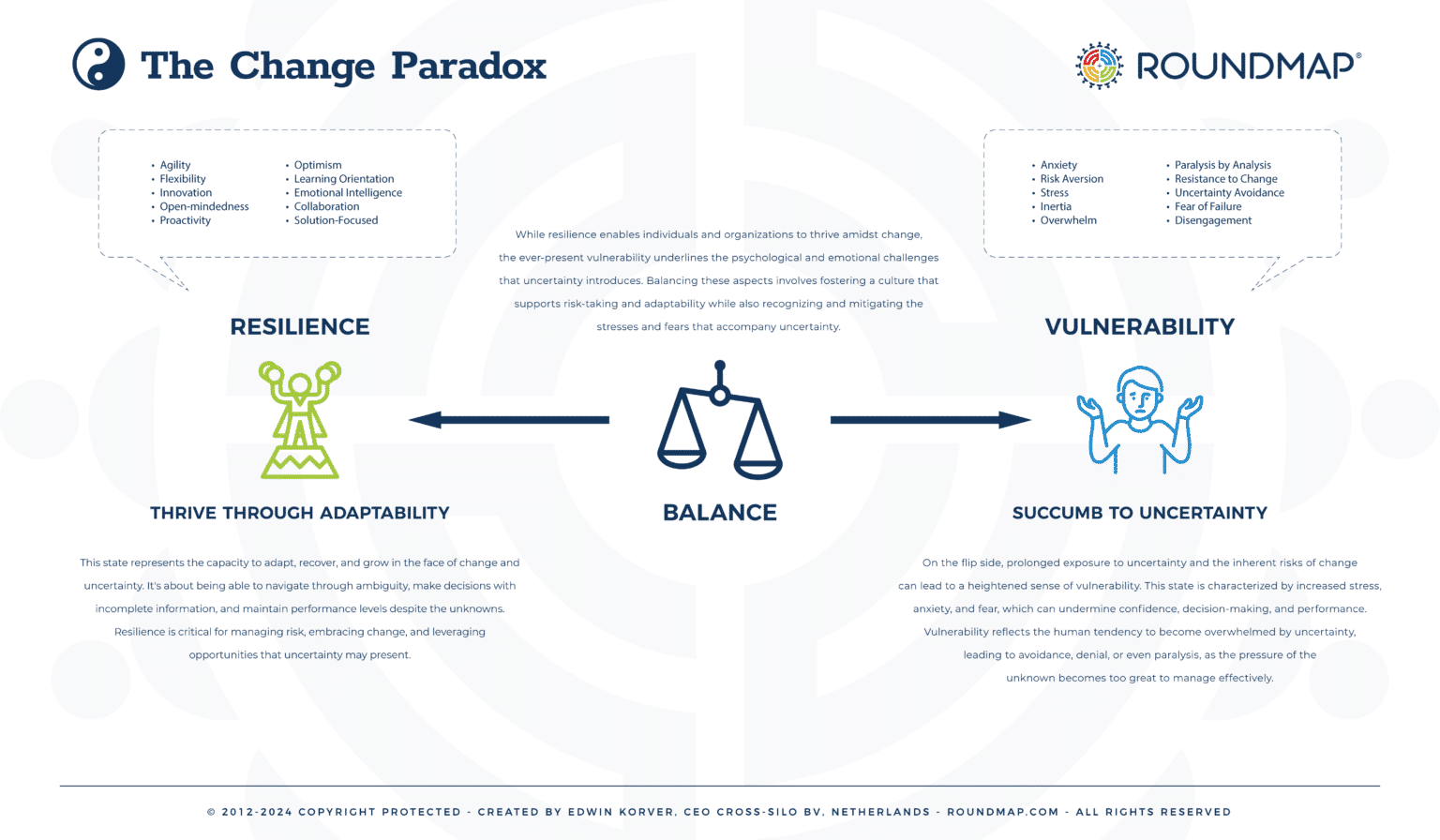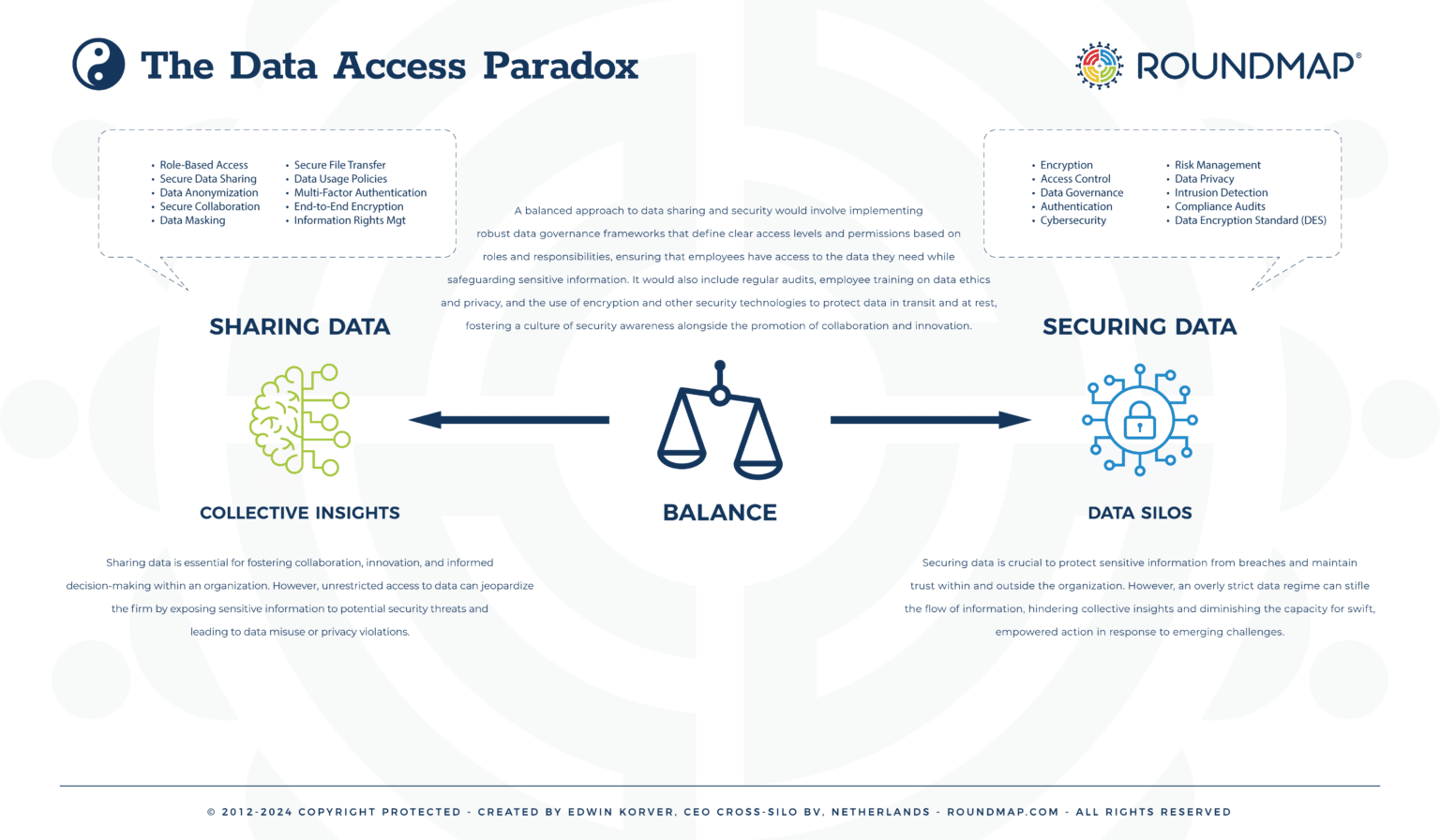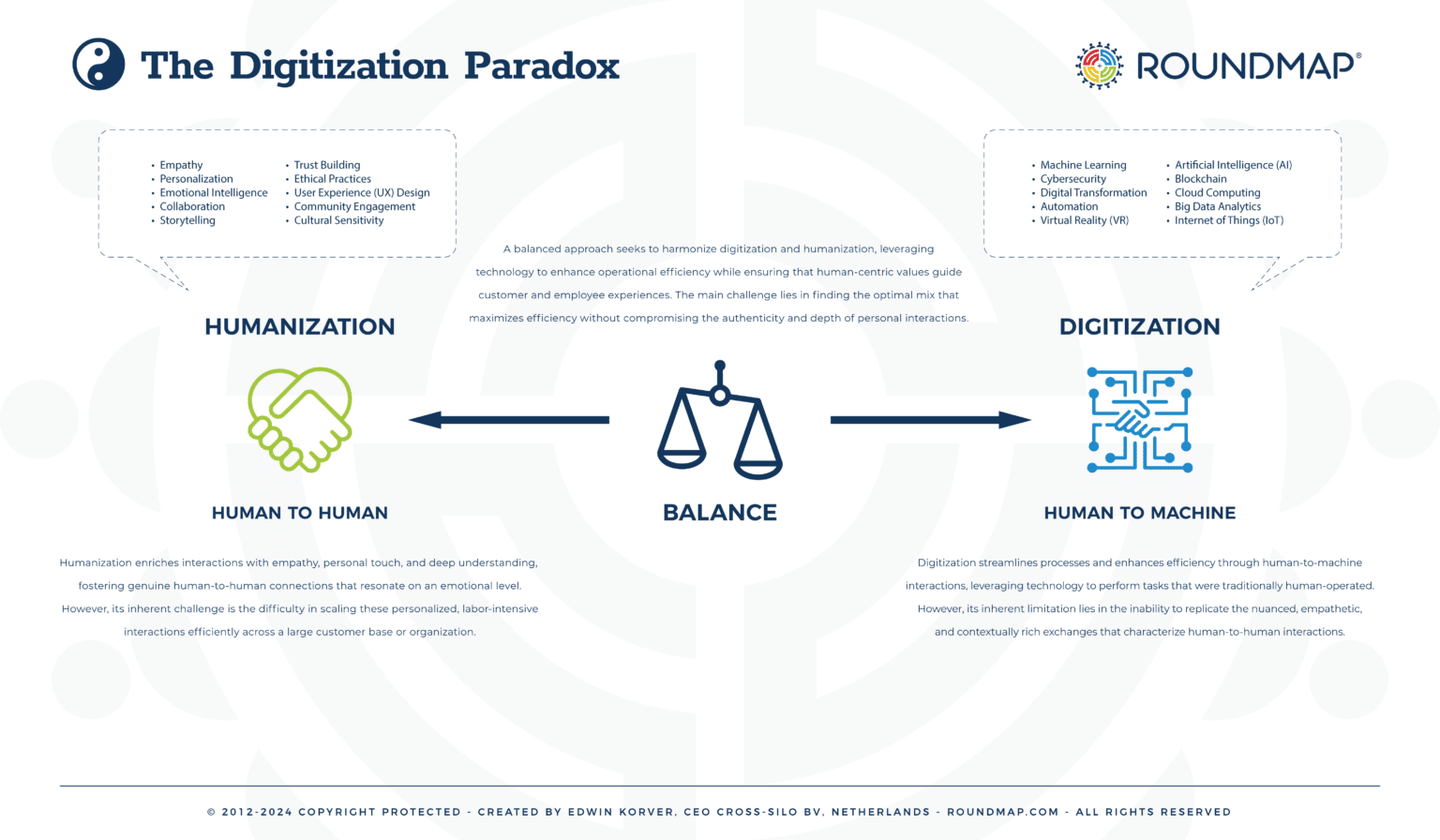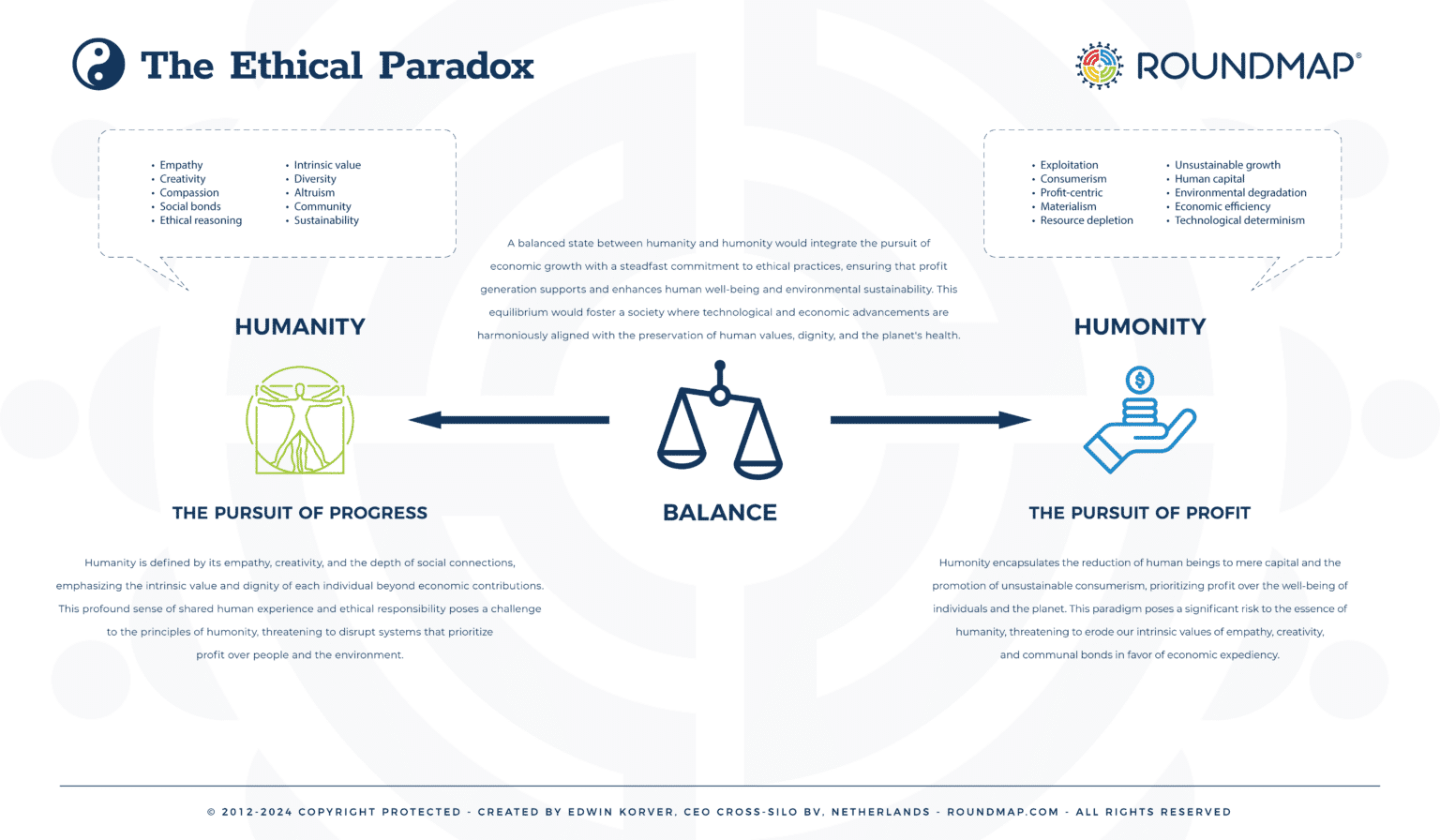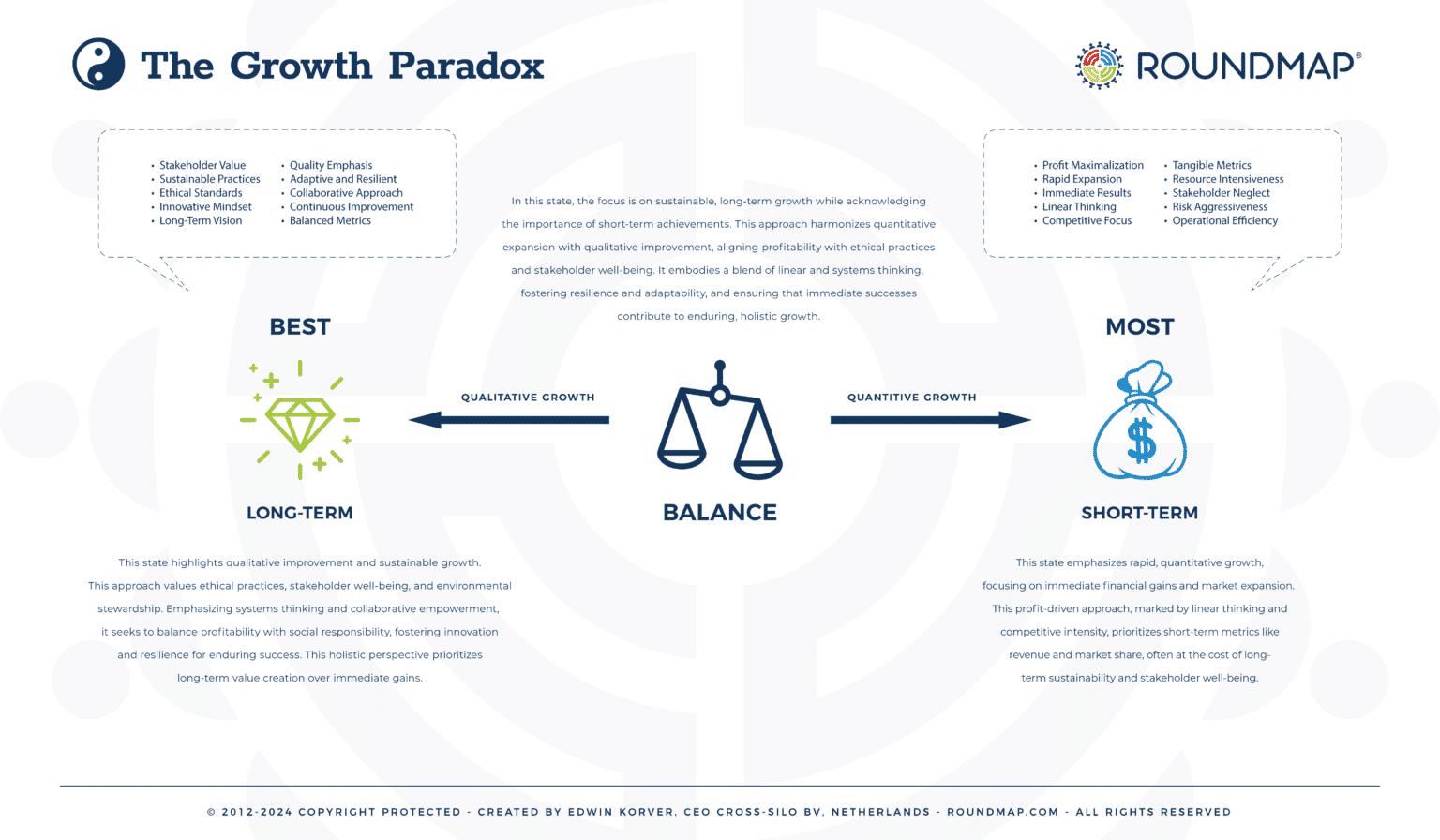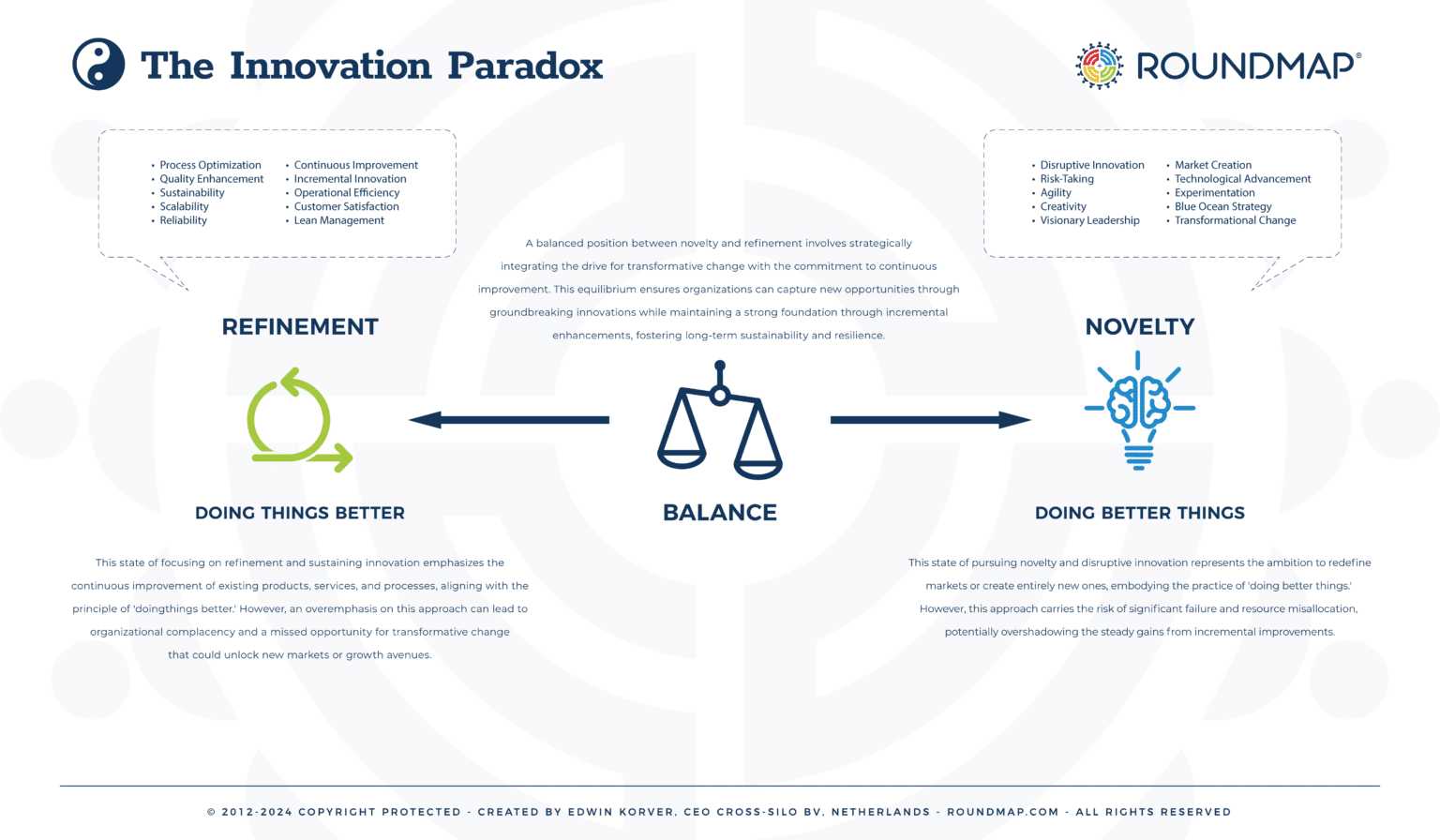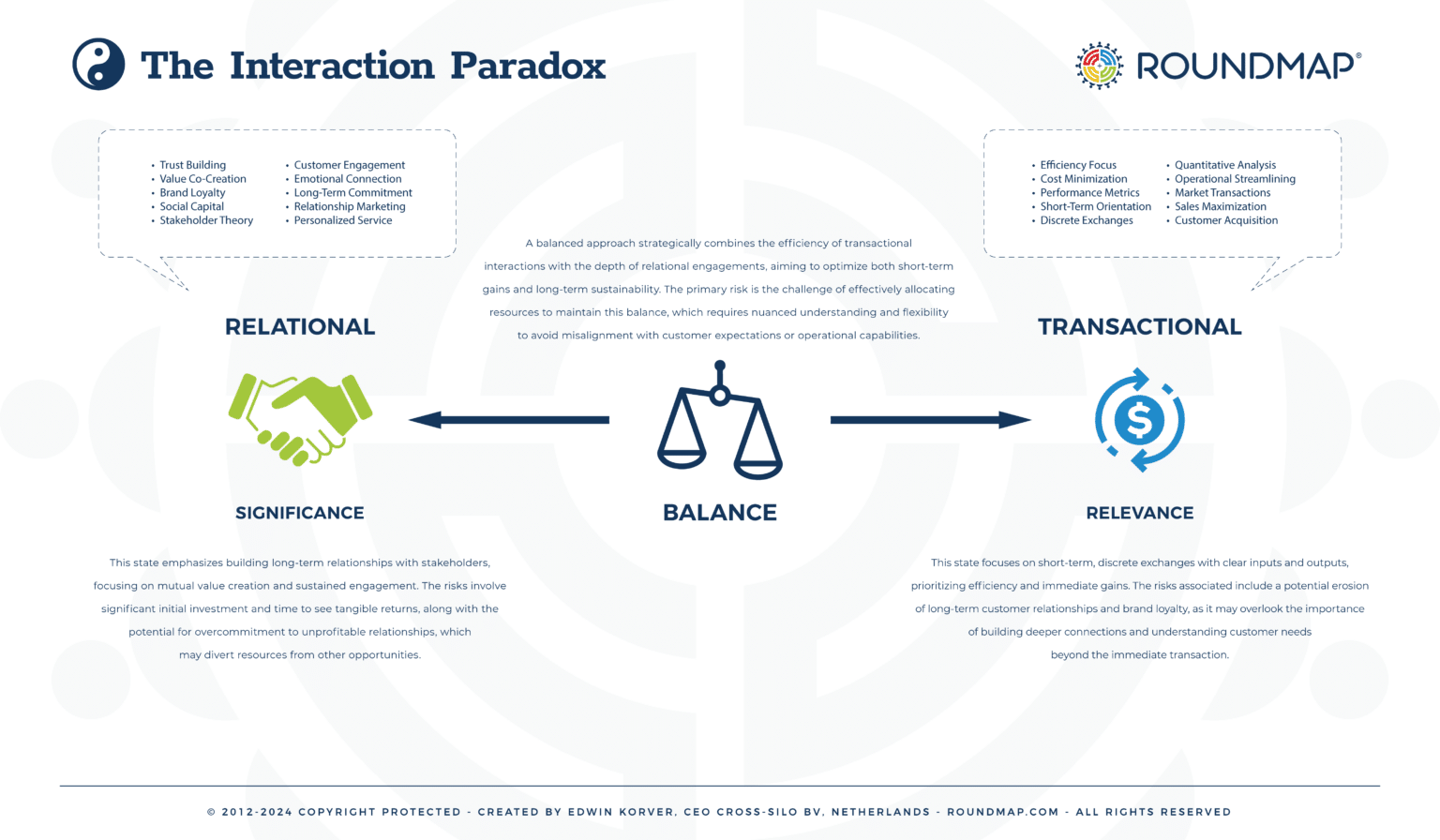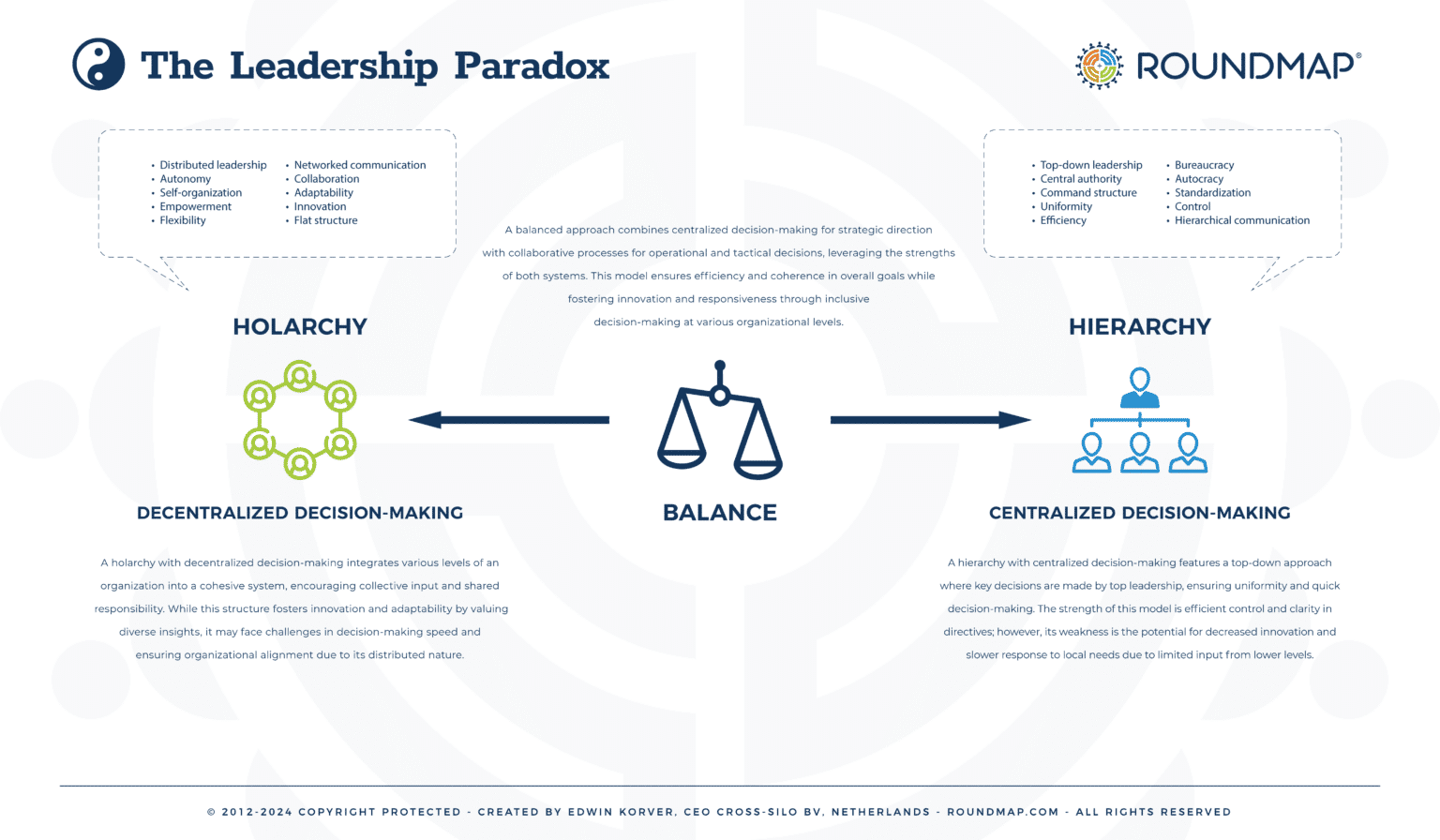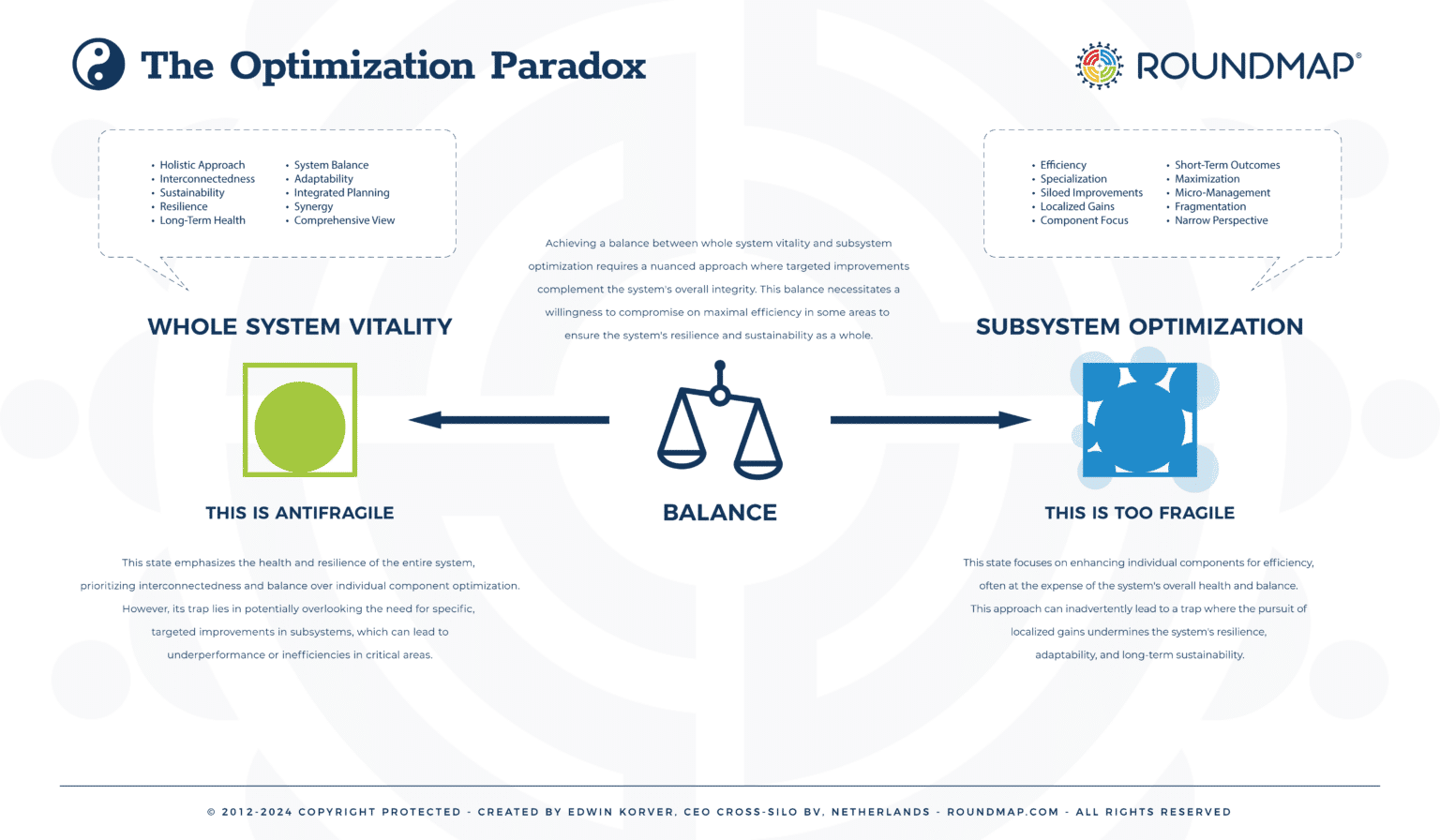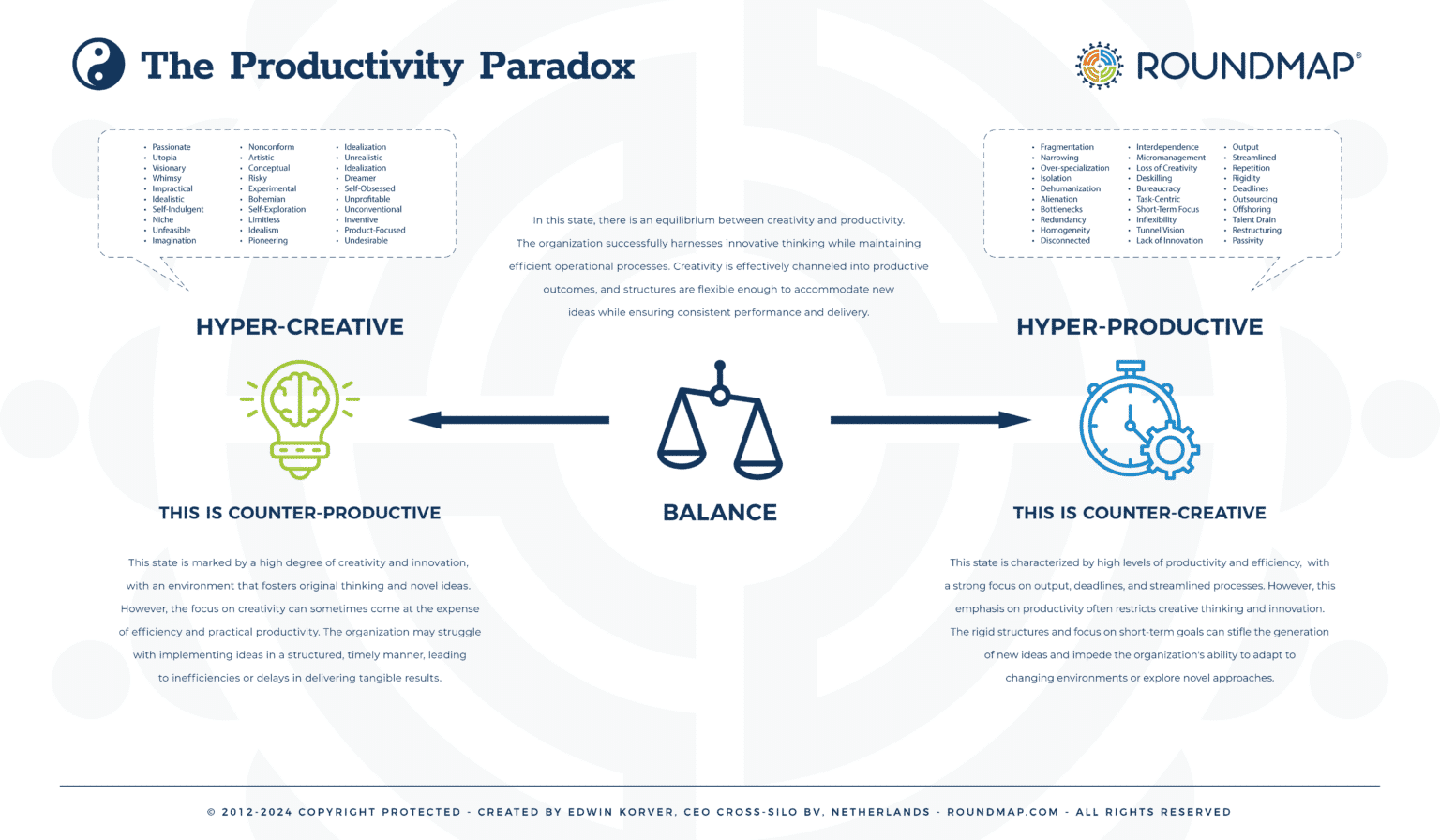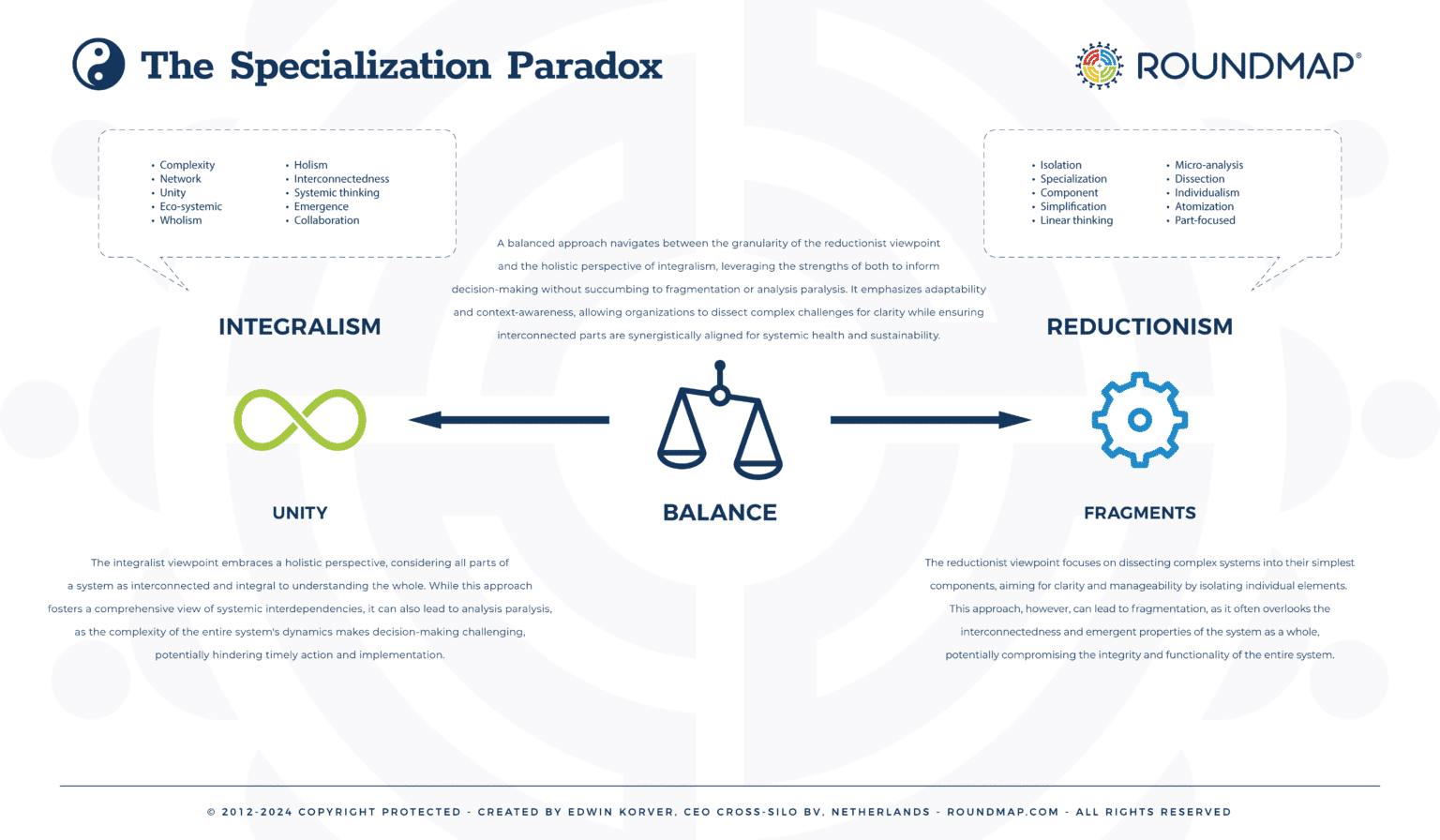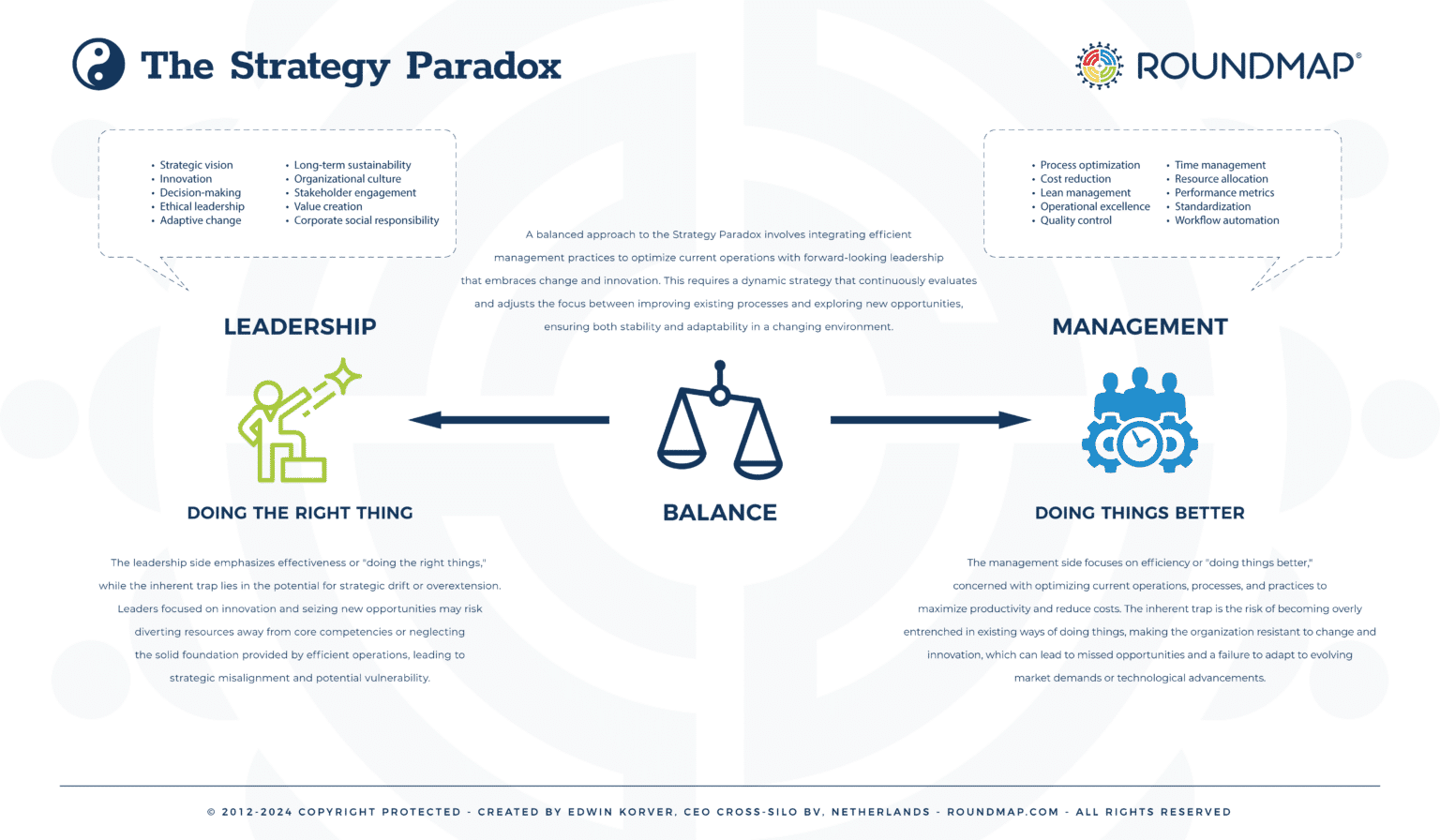In navigating the complexities of our times, we encounter paradoxes (sometimes presented as dilemmas) that compel us to pause and reflect deeply on our paths and the futures we aspire to create. These paradoxes are not merely intellectual exercises but profound invitations to reassess our values, actions, and the fabric of our societal constructs.
By confronting these contradictions, we embark on a transformative journey to reconcile with our past and forge a more meaningful, responsible, equitable, and thriving future. This space is dedicated to those willing to engage in this introspection, challenging ourselves to envision and work towards a world that reflects our highest aspirations for humanity.
So far, we have discussed the following paradoxes:
- The Change Paradox ─ Resilience vs. Vulnerability
- The Data Access Paradox ─ Sharing Data vs. Securing Data
- The Digitization Paradox ─ Digitization vs. Humanization
- The Ethical Paradox ─ Humanity vs. ‘Humonity’
- The Growth Paradox ─ Better vs. More
- The Innovation Paradox ─ Refinement vs. Novelty
- The Interaction Paradox ─ Relational vs. Transactional
- The Leadership Paradox ─ Hierarchy vs. Holarchy
- The Optimization Paradox ─ Health vs. Optimization
- The Productivity Paradox ─ Creative vs. Productive
- The Specialization Paradox ─ Integralism vs. Reductionism
- The Strategy Paradox ─ Doing the Right Thing vs. Doing Things Right
The Change Paradox
Paradox: The paradox of change lies in its dual nature: while it can unsettle and challenge our sense of stability, invoking vulnerability, it also serves as a catalyst for growth, innovation, and resilience. Navigating this paradox requires a delicate balance between acknowledging the discomfort of uncertainty and embracing the opportunities it presents for personal and organizational transformation.
Reflection: “How can leaders cultivate resilience and adaptability in their teams to navigate the uncertainty of change, ensuring organizational sustainability and employee well-being?”
The Data Access Paradox
Paradox: The Data Access Paradox refers to the challenge of providing sufficient access to data to foster innovation and decision-making while ensuring robust security measures to protect sensitive information.
Reflection: “How can I balance the need for open access to data within my organization to drive innovation and decision-making while ensuring that sensitive information remains secure against potential threats?”
The Digitization Paradox
Paradox: The digitization paradox intensifies as organizations aim to prioritize human-centric approaches, only to diverge from this objective by intensifying the digitization of interactions with stakeholders, fueled by the rise of robotization and artificial intelligence, which contribute to the dehumanization of business practices rather than enhancing human connection.
Reflection: “How can we embrace the advancements of digitization and artificial intelligence without losing the essence of human connection in our business practices?”
The Ethical Paradox
Paradox: The ethical paradox is rooted in the dual obligation for companies to expand and optimize efficiency to satisfy societal demands while simultaneously appeasing investors, often necessitating the sacrifice of human labor for profit maximization or the encouragement of consumption, potentially fostering irresponsible purchasing behaviors.
Reflection: “At what point does our quest for economic growth begin to cannibalize the very fabric of our society and the ecological balance essential for our survival?”
The Growth Paradox
Paradox: The growth paradox unfolds as companies initially strive to enhance customer value through improved prices or quality, yet in the pursuit of efficiency and productivity gains, they gradually shift focus from customer-centricity to internal optimization, inadvertently distancing themselves from their original purpose.
Reflection: “Is our conventional definition of growth truly serving us, or is it time to rethink and realign our growth strategies with broader, more equitable, and sustainable objectives?”
The Innovation Paradox
Paradox: The innovation paradox emerges as organizations navigate the tension between prioritizing novelty to stay ahead of the curve and fostering refinement to enhance existing products or processes, often struggling to balance disruptive innovation and incremental improvement.
Reflection: “At what cost does this relentless pursuit come, and what might we overlook in the race toward the next giant leap?”
The Interaction Paradox
Paradox: The paradox of business interactions encompasses the dichotomy between relevance, fulfilling immediate needs through transactional engagements, and significance, emphasizing future value derived from fostering long-term relationships.
Reflection: “Given the immediate gains from transactional quick wins versus the investment required for long-term success through relational groundwork, what key considerations are essential for reassessing our foundational assumptions about business interactions?”
The Leadership Paradox
Paradox: The leadership paradox arises as leaders aim for responsible and accountable employees while simultaneously withholding trust and autonomy, resulting in a workforce plagued by anxiety, fear of mistakes, and a lack of self-confidence, despite the capability to make decisions effectively.
Reflection: “How can organizations navigate the Leadership Paradox by striking an optimal balance between centralized authority, which offers clarity and alignment but may overlook detailed insights and employee buy-in, and decentralized empowerment, which encourages broad input and responsibility but can lead to information overload and alignment challenges?”
The Optimization Paradox
Paradox: The optimization paradox highlights the misconception that maximizing individual components inevitably leads to an improved overall system, often obscuring the interconnectedness and holistic perspective necessary for true organizational effectiveness.
Reflection: “Is it possible to relentlessly pursue efficiency within individual components without endangering the entire system’s health, resilience, and long-term sustainability?”
The Productivity Paradox
Paradox: The productivity paradox unfolds as companies, initially focused on creating customer value, pivot towards profit maximization through enhanced productivity, inadvertently diminishing their capacity for creative innovation.
Reflection: “Could it be that in our relentless quest for optimization, efficiency, profit maximization, specialization, and subsequent siloization, we inadvertently crafted the most ‘countercreative’ environment imaginable?”
The Specialization Paradox
Paradox: The specialization paradox encapsulates the notion that while specialization initially aims to improve performance, it often results in companies excelling at the wrong tasks due to a lack of holistic understanding, ultimately hindering overall effectiveness.
Reflection: “How can organizations balance specialized expertise and a holistic operational view to ensure part optimization enhances rather than undermines system vitality?”
The Strategy Paradox
Paradox: The Strategy Paradox describes the dilemma organizations face when they focus on optimizing current operations and adhering to best practices—believing they are doing the right things—unwittingly leads them to enhance and refine processes or strategies that are misaligned with evolving market demands or future opportunities. This paradox highlights the risk of becoming so engrossed in improving efficiency that organizations may inadvertently excel in areas that no longer contribute to their long-term success or strategic objectives, essentially doing the wrong things better.
Reflection: “Are our current efforts and optimizations leading us closer to our long-term vision and goals, or are they merely improving the efficiency of processes that may no longer align with our strategic direction and values?”

